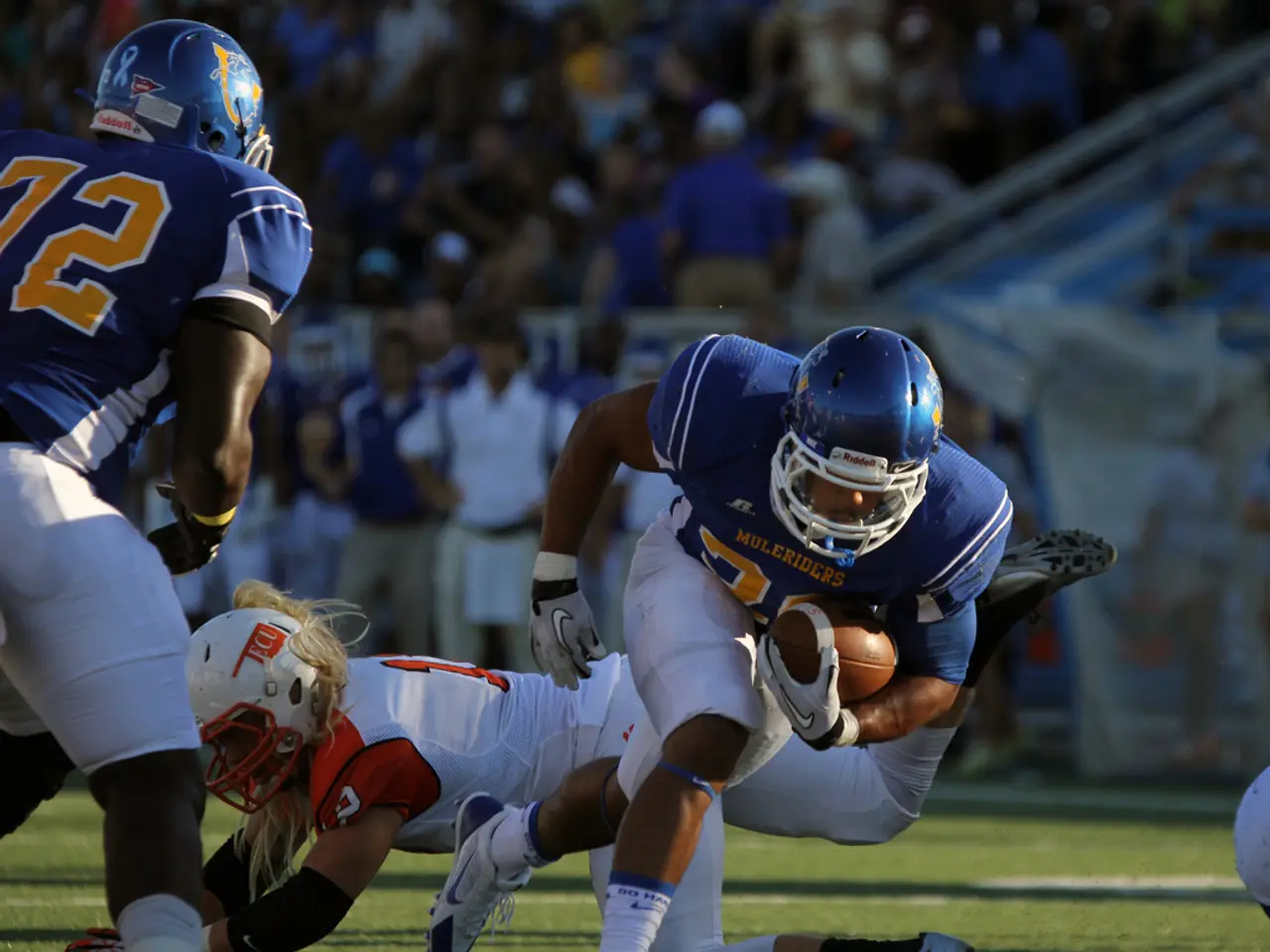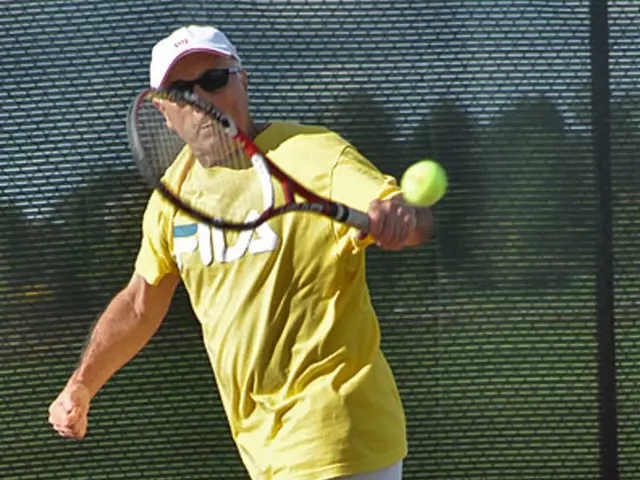The sport in question faces an acknowledged safety concern; might illuminated mouthguards serve as a potential solution?
Smart Mouthguards to Debut at Women's Rugby World Cup for Concussion Detection
As the Women's Rugby World Cup kicks off in England next week, a significant change is set to be introduced – the use of smart flashing mouthguards for all players, except those with braces. These innovative devices, designed to detect potential concussions, are expected to revolutionise the game's approach to player safety.
World Rugby's chief medical officer, Dr Eanna Falvey, has stated that the technology will allow them to understand the risks associated with the sport better than ever before. The mouthguards use sensors to detect significant head impacts by measuring head acceleration and rotation. When thresholds are exceeded, the mouthguard LED flashes red, alerting referees immediately for swift head injury assessments.
According to World Rugby data, women's concussion rates are similar to those in men's rugby, although severe head acceleration events are less frequent among female players. This technology is seen as an improvement over existing systems that alert doctors via Bluetooth but may have delays in communication.
Rugby authorities have taken a proactive stance in addressing the high risk of injuries, including concussions, that come with the sport. Beyond technology, rugby codes are evolving safety measures. For instance, Rugby League has adopted comprehensive recommendations such as mandated use of instrumented mouthguards in top leagues, reduced contact training periods, and lowering the legal height for tackles.
World Rugby has also trialed law changes inspired by research, such as lowering the legal tackle height to reduce high-impact collisions. The aim is to create awareness and better player protection.
Professor Falvey acknowledges that rugby is a contact sport and emphasizes World Rugby's goal of making the game as safe as possible. He stresses that those who play rugby do so because they want to play contact sports and that the ferocity of the game is an essential aspect of it. However, he also acknowledges that female players may be more susceptible to concussions than male players, but at "much lower magnitudes."
The sport is currently facing legal action from more than 700 former players who claim leaders were negligent in failing to take reasonable action to protect them from brain injuries. This context of litigation contributes to increased scrutiny and motivates governing bodies to implement enhanced safety protocols.
Dr Lindsay Starling, World Rugby's science and medical manager, stated that rugby is not incredibly safe due to the high risk of injuries. However, she believes that the active efforts to improve detection and prevention, especially ahead of the upcoming 2025 Women’s Rugby World Cup, demonstrate a commitment to creating a safer environment for all players.
Dr Falvey also emphasises the benefits of being involved in team sports, citing physical inactivity as the biggest health concern in the Western world. He believes that the sport, when played safely, offers numerous health benefits and encourages parents to allow their daughters to participate.
In conclusion, the introduction of smart mouthguards and stricter playing laws in the Women's Rugby World Cup reflects both the physical nature and inherent injury risks of rugby, the transparency and urgency with which the sport addresses concussion, and external pressures including legal accountability. The goal is to create a safer environment for all players while preserving the essence of the game.
[1] Smart Mouthguards to Debut at Women's Rugby World Cup for Concussion Detection [2] Rugby League Adopts Comprehensive Concussion Safety Measures [3] World Rugby Embraces Smart Mouthguards for Player Safety [4] Women's Rugby World Cup to Feature Smart Mouthguards for Concussion Detection [5] World Rugby Trials Law Changes to Reduce Concussion Risk
[1] The use of smart flashing mouthguards in the upcoming Women's Rugby World Cup not only marks an advancement in player safety but also broadens the sport's approach to detecting concussions, similar to the strategy being adopted in football.
[2] While the Women's Rugby World Cup pulse with the intensity of traditional war-like sports, the implication of these smart mouthguards signifies a concerted effort to validate that war does not solely connote aggression but can also prioritize protection for its combatants.



![Record-setting pole vaulter Duplantis clears over 6.29 meters [20 feet]](/en/content/images/size/w640/format/webp/20250821172345_pole-vault-world-record.jpeg)




